|
St. Maximilian Kolbe is heralded as the Saint of Auschwitz. In a remarkable act of love and humility, the Polish priest offered his life for a father when faced with execution in the Auschwitz concentration camp during the Holocaust. While we often define our saints by one ultimate act – their martyrdom, a profound miracle, or a moment of boldness for God – St. Maximilian, like our other saints, is so much more than one supreme moment of magnanimity. St. Maximilian Kolbe was a mover, a shaker, a deal maker, and an innovator, especially when it came to Catholic media. Allowing his full story to illuminate his sainthood will help us all become more in tune with our own call to do more – to be more – for the glory of God. If we only think about St. Maximilian as the Saint of Auschwitz, it can be limiting, but oddly freeing. It’s easy to think, “Wow, what an incredible act of love for the other!” while knowing that most of us will never have that moment of choice in our lives. It’s easy to be inspired by him and revere him for his great courage rather than internalize how this might affect us day to day. We see the grandeur of other saints too and we forget that they were normal people with interests and complicated lives like ours. Keeping them on a pedestal, while probably enhancing our prayer life, hinders us from relating to the saints and allowing their example to influence the monotony of our daily lives. In the last ten years, there is a sort of movement in the Catholic Church today to fully illustrate the life of the saints, and most of this is done through Catholic media. My first experience with this was when I saw Word on Fire and Bishop Robert Barron’s “Pivotal Players” series, which tells the stories of twelve pivotal saints in the places where they grew up sharing how they became the people that made them saints. My husband and I hosted several people from our young adult group at our house to watch this series together and then discuss how these saints are relevant for our lives today. Of course this bore tremendous fruit, not only in the beautiful conversation and personal stories, but in a small group fluctuating between six to ten people each week, two couples emerged from that group who ended up getting married. We were thrilled that they not only met in our home, but that the stories, legends and lives of the saints was the catalyst for them discovering their vocation as husband and wife. That series grounded these wonderfully holy saints to be real for us; their miracles continue as hearts are moved by learning about who they are. This brings me back to St. Maximilian Kolbe. After watching this series, I started taking time on a saint’s feast day to read the blurbs about who they are, where they came from, and their supreme act. I would take the short five minutes to envision that time, their challenges, and how they rose above conflict for their ultimate “yes” to God’s call. For St. Maximilian, I challenge you to take some time to read his story today or watch some videos about him. There are also some great films about his life. Something about him that animates my work (MAX Studios is named after St. Maximilian Kolbe) is his awareness of the importance of media. This was the early 1900s (St. Maximilian died when he was only 47 years old) and you can imagine all the new media that was coming out at that time. St. Maximilian attended the Olympic games in 1936. He went to Berlin, not to see the competition, but because there was an exhibit showcasing television and technology. He said, “While building churches that are beautiful and spacious is important, without Catholic media, these churches will be empty.” How true is that even for today? That simple story resonates with our current time with such gravity that we have to take it to heart. Catholic media, while it can be contentious or annoying depending on your preferences, it’s undeniable that it bears fruit. In unexpected ways, the stories of the saints like St. Maximilian Kolbe – in written format, in dynamic video, in interesting podcasts – have tremendous meaning that supersedes time and space because the Holy Spirit moves through these narratives. In our Catholic storytelling, the saints become normal people, so that all people can see their universal call to holiness, and that call is realized through recognition of one’s vocation as called by Jesus Christ. I think back to those marriages that emerged from that small group. Maybe those couples would have met under other circumstances, but how incredible that a part of their story is an attraction to one another after studying the lives of our most revered saints – through the proliferation of dynamic Catholic media. Take time to know the saints who are honored in our church because their lives still perpetuate miracles beyond their earthly death. I believe St. Maximilian Kolbe is challenging us in this day and age to use Catholic media to its fullest to bring people to see their vocation in Jesus Christ as the ultimate calling. We have so much at our fingertips, that to engage in Catholic media, especially in community to share and discuss, it brings to life and grounds our rich and vibrant Scripture and Tradition. Today, we remember St. Maximilian Kolbe – a true innovator and evangelist. Now, go explore and share some Catholic media to celebrate him. Extras: National Shrine of St. Maximilian Kolbe Pivotal Players | Word on Fire The Amazing Story of St. Maximilian Kolbe by John Clark | Magis Center VIDEO: St. Maximilian Kolbe w/ Bobby Angel | Ascension Presents
0 Comments
Social media has been gaining momentum in the Catholic world since the mid-2010s; however, since the COVID-19 pandemic began, digital evangelization and virtual faith-sharing have become even more important and prevalent. Because in-person liturgies, retreats, and daily interactions were not possible, Church organizations across the U.S. began to increase their digital footprint. Although the Catholic Apostolate Center has used technology and social media as tools for evangelization since its inception in 2011, the COVID-19 pandemic also led the Center to a greater focus on digital evangelization and online formation tools. As an intern with the Catholic Apostolate Center, my time has been punctuated by helping people encounter the Church and faith formation more positively. Specifically, expanding the Center’s courses on Catholic Faith Technologies’ e-learning platform and building an app for the Immaculate Conception Province of the Pallottine Fathers and Brothers has allowed me to create new ways for people to encounter Jesus Christ and learn more about Him. Pope Francis has followed the footsteps of his predecessors by encouraging the Church to continue evangelization over the internet. Our Holy Father has stressed the importance of using the technological means available to us today in order to proclaim the Gospel “to all the nations.” This evangelization can come in many ways and forms, and the Catholic Apostolate Center has embraced this understanding since its foundation. This summer, I have been working on adapting the Center’s “Apostles on Mission” in-person course to be an asynchronous course online with Catholic Faith Technologies’ e-learning platform. As a secondary education major, I was able to hone my skills as an educator by looking at the lesson outlines and plans and advising a break, an activity, or a different method of conveying the content to increase engagement. This project has also helped me look at what intellectual faith formation means and why it is so pertinent to the spiritual life. Formation in the Church calls us to learn more about Jesus, the Church, our Faith, and our own strengths and weaknesses. However, with the advent of the internet, we must cast the net over the right side of the boat, as Jesus calls us, to reach more people and continue to spread the Gospel message. Expanding digital resources for faith formation allows all the faithful to grow closer to our Lord. Digital evangelization can also allow for a more profound personal encounter with Jesus Christ. As seen throughout the pandemic, prayer resources can help people feel connected to the greater Church community. People want to experience various types of prayer to delve deeper into the spiritual life. The Catholic Apostolate Center has been working tirelessly this summer to create a prayer app for the Immaculate Conception Province of the Pallottine Fathers and Brothers. This app—entitled “Revive & Rekindle”—will assist the Pallottine community and the general faithful in growing closer to Christ through the spirituality of St. Vincent Pallotti. This project has allowed me to make two important observations about the Catholic faith. First, we must promote various forms of prayer and devotion to help the faithful find the styles of prayer that best suit them. Second, prayer and devotion must be disseminated and promoted in different media to spread the Gospel message to as many people as possible. The “Revive & Rekindle” app will allow people to grow closer to Jesus through reflections and prayers inspired by St. Vincent Pallotti, who urges us all to become Apostles for the Lord. As a strong proponent of the New Evangelization, Pope Francis encourages us to enter the digital landscape to encounter people and bring them closer to Christ. The Church can only do this through intentional formation and by promoting an encounter with Christ online. As an intern at the Catholic Apostolate Center, I have grown professionally, personally, and, most importantly, spiritually. Working with the Center, I have concretely realized what Pope Francis means when he urges young people not to “wait until tomorrow to contribute your energy, your audacity and your creativity to changing our world. Your youth is not an “in-between time” (Christus Vivit). A vast majority of people in the United States have social media, and since many Catholics are among this number, we have to preach the Gospel on all channels and encounter others and Jesus Himself through means of digital formation and evangelization. We must reach out to all corners of our world and society to be Apostles on mission for Jesus.
I have always enjoyed social media— so much so that I have the opportunity to do it professionally! By nature of my employment, I spend a lot of time on social media. During this unprecedented time of COVID-19, I have found a lot of hope, inspiration, and helpful information online. I must also admit that I have felt overwhelmed at times after constantly seeing COVID-19 related posts. I appreciate the acknowledgement of what’s going on globally and the virus-related posts, but I also appreciate those that are posting their regular content so that we can maintain some semblance of normalcy.
Last week (the first week of COVID-19 self-quarantine in the United States), I spent way too much time on my phone. Between losing the structure of being in the office and just getting caught up in scrolling, I spent a considerable amount of time on social media. By Wednesday, I noticed that it was taking a toll on me. I felt over-stimulated and overwhelmed. I felt like I couldn’t concentrate on anything because my mind was filled with so much noise. This week, I will be implementing a few things in order to maintain a healthy relationship with social media:
I am hoping that implementing the practices I mentioned above allows me to enjoy social media more than leaving me feeling overwhelmed by it during this time. There are many beautiful aspects of social media that can help me feel connected. I love seeing what my loved ones are up to. I love seeing how my fellow Catholics are building up the Church during this challenging time. I love to see what my favorite organizations are doing to aid COVID-19 efforts. I want to scroll through my social media accounts and remember why I love them rather than feeling overstimulated and too anxious to enjoy them. Click Here to Download this Blog as a PDF! \We are once again in the midst of the liturgical season of Lent. These forty days before the Triduum are opportunities to prepare ourselves to enter into the Passion of Christ through penitential practices such as prayer, fasting, almsgiving, and self-sacrifice. Done correctly, our Lenten practices can be cathartically cleansing as we imitate Christ’s forty days in the desert after His baptism. This incredible withdrawal of the Lord from the outside world to dwell on the calling of His Heavenly Father before the commencement of earthly ministry remains a model for us all. During Lent, the faithful do not isolate themselves from the world in fear but rather draw strength from Christ. Shaking off the comforts and complacencies of living in the world may be a bit jolting, but our ultimate goal is holiness; anything else is just a noisy distraction which can never truly satisfy our deepest desires. Today, technology has become integrated into our lives and relationships. Social media, the internet, and the incredible utility of our smartphones may occupy a large part of our daily attention. It’s no wonder we can find it harder to disconnect from the outside world. Indeed, while the proper and moderated use of technology can be beneficial, observing the dangers of failing to unplug from the world (i.e., harming real human connections), has helped deepen my appreciation for the isolation opportunities afforded by Lenten observances. Lent calls each of us to remember the ultimate sacrifice God Himself made on Good Friday. This salvific act is so significant that it cannot be restricted to just one day on the liturgical calendar. The Church commemorates Jesus’ Last Supper, Passion, and Death during the Triduum. As these days draw near, the faithful are called to prepare themselves to enter into the Paschal Mystery by putting aside our worldly comforts and imitating how our Lord spent precious time among His disciples before His death. While Lent is an increased time of preparation and time of intentional growth in holiness, the Church has no shortage of opportunities to deepen our relationship with the Lord year-round. Sunday Mass offers us the spiritual nourishment and proper grounding to start each week. The choices we make in the hours or days following Mass can build upon the scriptural and sacramental foundations laid during the service. Recommitting ourselves to our families and their needs can strengthen the love binding us together; praying with and serving each other builds up the domestic church. For example, volunteering to lead devotional prayers together as a couple or family is a beautiful expression of intimacy and faith. Additionally, during Lent and beyond, we may replace screen time with spiritual reading so we can be inspired by the writings of saints or theologians and discover new avenues of holiness for our lives. Certainly, we can sacrifice a worldly comfort during Lent, but we can also perform charitable works and make a difference in the lives of others during this season. Lent is not a diet! Lent is intended to bring us closer to God, Who is found not in the noise of the world, but in the quiet whisperings of an open heart. Prayer enables us to make room in our hearts for Him to dwell in the temples of our bodies and radiate through our lives. We cleanse ourselves of distractions that prevent us from the holiness He calls us to and we commit ourselves to prayer, fasting, and almsgiving. We repent of our sinful shortcomings and avail ourselves of the sacraments of the Church. Our desire to accompany our Lord can be fulfilled by our faithful vigilance in Eucharistic Adoration, especially in the nighttime hours when our “spirit is willing, but the flesh is weak.” Our Lord is present in the Eucharist we receive at Mass, the Sacrament we adore, the family we are a part of, and the people we serve. He is always ready to not just be a relegated part of our lives, but the core of our very being. The season of Lent can serve to motivate us to choose the better part rather than be complacent in the empty comforts of the world. Though we seek isolation from the distractions of the world to accomplish a meaningful and fruitful Lenten observance, we are promised by the Lord God Himself that we never walk alone when he says: “I am with you always, until the end of the age.” For more resources to accompany you throughout your Lenten journey, please click here. Quotes are very popular on social media. People tweet them, dress them up with background color or images, and add them to memes and gifs, usually for comedic effect. A few years ago, after tweeting and also posting on Facebook many quotes of St. Vincent Pallotti, I decided on Ash Wednesday to tweet, “‘Lent is not a diet program.’ -Not St. Vincent Pallotti.” I also posted it on Facebook. To my surprise, it caused a bit of a stir. It did not go viral (nothing I post does), but people I see in real life did notice (even if they did not love or like it on social media). They mentioned it and the meaning of the non-Pallotti quote seemed to resonate.
Now, I could stand to lose some weight, but Lent as a means to this end is not what the season is about. It is a time of penitential preparation that aids us in loving God and loving neighbor more fully. It is not focused on self, even if we “give something up for Lent.” The Lenten season is a time for us to look at where we are and through prayer, fasting, and almsgiving, done in cooperation with God’s grace, move to where God wants us to be. Any self-denial that we do must lead to greater selflessness. As Lent begins, we at the Catholic Apostolate Center hope that our Lenten resources might assist you in this effort. The traditional Catholic means of prayer, fasting, and almsgiving are not ends in themselves, but help us to deepen our encounter with the Risen One, Jesus Christ, in and through the community of faith and to go forth as his apostles/missionary disciples. Please know that we will accompany you in special prayer during this Lenten season. May the Charity of Christ urge us on! For resources to accompany you this Lenten season, please click here. Today, the Catholic Apostolate Center is celebrating its 8th anniversary of reviving faith, rekindling charity, and forming apostles. We have both had the honor of being a part of this amazing and spirit-filled endeavor since its earliest days and remember fondly what it took to get started. When Fr. Frank Donio, S.A.C. gathered a small group of committed collaborators together to think about what the Pallottines of the Immaculate Conception Province could do to answer the Holy Father's call to a new evangelization, it was clear that we needed to work with active Catholics. We felt called to meet them where they were on their individual faith journeys. This meant that we needed to engage all that the internet had to offer, to use emerging social media, and to reach people where they were conducting their daily lives. In the last eight years, the work done by the Catholic Apostolate Center has impacted the lives of thousands of people through conferences and events; hosting hundreds of webinars and Facebook Live events; providing learning and educational opportunities through seminars and speaking engagement; making spiritual posts on Facebook, Twitter, Instagram; developing programs with our affiliated partners; and providing space for collaboration among Church entities. All the while, our mission is not necessarily to reach the masses, but to reach the one. We work collaboratively to develop our resources – working with the individual gifts and talents that each member of our team and our collaborators possess, always leaving room for the Holy Spirit. Each of us has grown professionally and personally in an environment that challenges, affirms, and provides us opportunities to share our own gifts through presenting, writing, video production, marketing, management, and administration. We look forward—through the Holy Spirit and God’s Divine Providence—to continuing our mission for another eight years and beyond.
Can you imagine yourself as one of the apostles? Put yourself in their shoes. You were moved by Jesus. His teachings spoke to your heart. When you were with him, you felt incredibly alive, free, loved and full of hope. No one persuaded you; you wanted to follow him. You were there when Jesus fed the 5,000, gave sight to the blind, and raised a young man from the dead. He received a royal welcome into Jerusalem. You celebrated Passover with him. You were also there when the soldiers came and dragged Jesus off to be crucified. Scared for your own life, you hid in the shadows abandoning him to death on the cross. You were a puddle of fear, sadness, anger, and despair. You disgust yourself. Disoriented, you stumble upon the others. You look to Peter but that rock is crushed, broken by grief and disbelief. The Sabbath comes and goes. It’s over—time to pick up the pieces of your life and move on. But just as you begin to leave, two female disciples arrive with astonishing news. Jesus is alive! Remember the mountain in Galilee? Remember what he said? Go there and you will see him. Of course, you go. You gather with the other disciples and make arrangements for the journey. It will take four days. Along the way, you cry, confess, and tell stories. You see the mountain in the distance. A lone person is descending from the top. Before you know it, Jesus is approaching you. You are gaping-mouth-open astonished. Some fall down to worship him. Others cannot believe it. Peter collapses to his knees. And still, Jesus approaches. He embraces you. You are alive again. Jesus reaches out to everyone. He turns to Peter last, lifting him up, restoring his strength. Jesus calls you together. "All power in heaven and on earth has been given to me. Go, therefore, and make disciples of all nations, baptizing them in the name of the Father, and of the Son, and of the Holy Spirit." He pauses here, letting his eyes meet each one of us. Some of us are giddy with joy, others cannot stop the tears. "Teaching them to observe all that I have commanded you." Suddenly, your heart begins to burn within you. You have a lot to say, a lot to share, a lot to tell. You remember with crystal clarity everything he taught, every moment he was with you, all the experiences you shared. You know now who you are and what you are about. It is time to go. But you hesitate. You want to stay. Jesus knows your heart. He is speaking again. Amazingly, he is talking to everyone and only you at the same time. "Behold, I am with you always, until the end of the age." Stay here. Stay with Jesus resting his eyes in yours. You have a lot to offer. You know who you are, what the Lord means to you, what he asks of you, and what he has given you. The stark truth of mission is hard to believe. God sends you into the world because there is something the world needs that only you can give. World Mission Sunday reminds us that we are sent to the whole world. As disciples of Jesus, there is no place or people beyond our sphere of concern. Pope Francis reminds us that mission is an "immense work of mercy, both spiritual and material." Last year, many of us “walked with Francis.” This year, let us be with Pope Francis in the mission of mercy. Let us renew our call to mission - to care about everyone, everywhere. I offer three suggestions on how to renew the call to mission:
Jesus is sending us out to all nations and he will be with us always. We will be astonished at how the Lord will reveal himself to us through mission. It is time to go. **This post was originally posted on October 20, 2016. A few weeks ago, the Pew Research Center released an article titled “Just one-third of U.S. Catholics agree with their church that Eucharist is body, blood of Christ.” Immediately after the study’s release, social media erupted with reactions of disbelief, shock, and anger, as well as theories of how to “fix this,” including greater catechesis and adjustments to our general liturgical practices. Despite the immediate reaction, there is no need for panic, as Christ assures the Church that “the gates of the netherworld shall not prevail against it,” (Matthew 16:18). Furthermore, jumping to such dire conclusions after one survey is not necessarily good pastoral or catechetical practice. As the Church examines the status of belief in the Real Presence and how to cultivate a greater understanding of that reality, she is also very aware of the need to deepen our encounter with Christ. As we ponder Christ’s presence in the Eucharist, we must ask ourselves if we have truly encountered him. In his encyclical letter Evangelii Gaudium, Pope Francis suggests that we “look at those first disciples, who, immediately after encountering the gaze of Jesus, went forth to proclaim him joyfully: ‘We have found the Messiah!’ (Jn 1:41).” In the end, how we catechize and what our liturgical practices are both require deeper reflection and greater discernment as to how God is calling us to use them as methods of ongoing conversion and evangelization. The doctrines and dogmas that we teach, how we celebrate the Mass, how we best serve our fellow man, are all likely to fall on deaf ears if they are not built on a deep and personal encounter with the Risen Christ. To examine this issue of Eucharistic belief, we should first look to chapter 4 of Christus Vivit, where Pope Francis reminds young people (and all of the people of God) that God is love, he saves us, he gives us life, and he is alive! If these four truths, which are expounded upon in good catechesis and experienced in their fullness in the Mass, are not understood deeply and intimately in the heart of every baptized Catholic, then moving forward will be extremely difficult. If I do not know Christ as the one who saves me, who walks with me through my life, as the one who gives me life, then why does it matter if it is truly his Body and Blood that I receive in its fullness at the Mass? Similarly, if we don’t understand the Kerygma—the mystery of the salvific work of God culminating in the passion, death, and resurrection of Christ—then how can we begin to understand the mystery of transubstantiation (CCC1376), especially when philosophical distinctions like matter and form aren’t in the everyday vocabulary of most Catholics? Pope Francis reminded pilgrims of this reality during a November 2017 General Audience when he said, “Every celebration of the Eucharist is a ray of light of the unsetting sun that is the Risen Jesus Christ. To participate in Mass, especially on Sunday, means entering in the victory of the Risen, being illuminated by his light, warmed by his warmth.” Pope Emeritus Benedict XVI famously wrote in his encyclical letter Deus Charitas Est, “Being Christian is not the result of an ethical choice or a lofty idea, but the encounter with an event, a person, which gives life a new horizon and a decisive direction.” I certainly don’t have the “easy fix” answer as to how to increase belief in the real presence in the Eucharist, but I heartily believe that it begins with a renewed sense of the encounter Pope Benedict XVI was writing about. We use the word “renewed” because even those of us who profess our faith in the Risen Lord are invited “to a renewed personal encounter with Jesus Christ, or at least an openness to letting him encounter them; I [Pope Francis] ask all of you to do this unfailingly each day” (Evangelii Gaudium). We must witness to the encounter that has given our lives “a new horizon and a decisive direction,” and share that with those whom we meet. When we accompany our brothers and sisters on their journey to know Christ more fully, we help them to encounter him in the way that the Holy Spirit guides them. If that encounter is through theological and philosophical distinctions, through service, through the liturgy, etc. then praise God, because it is through him that those are effective and not because of their own merits. As we continue to wrestle with this recent study and its implications, may we meditate on this: if we believe that the Eucharist changes us, strengthens us, heals us, then we must show it, we must witness to it authentically and humbly in all circumstances. As a communications manager who handles the social media accounts for my day job, I’ve had to work at and learn how to better manage my time spent on social media. While this technology is an exciting and ever-evolving resource for sharing and obtaining news, I’ve found social media can also drain my energy or keep me from my priorities. Within the last year, I noticed I was spending four or more hours a day on social media and browsing the Internet. I saw my spiritual life was being affected, so during this past Lent, I decided to do something about that imbalance. I knew I still needed social media for work use, and I discovered a solution. By implementing the screen time and do-not-disturb settings on my phone, I found I could limit my social media consumption to an hour per day. Whatever time was left after work allocations I could spend on personal social media time. Most days I used 45 minutes or the whole hour for work. I came to appreciate that my time was spent elsewhere in a more productive manner. I used the time for additional prayer, reading, church, conversations with friends, and other enjoyable activities. My brain didn’t feel as fuzzy and scattered with random bits of information that would send me off the paths toward my personal, professional, and spiritual goals. After Lent, I took off the screen time and do-not-disturb parameters on my phone due to an evening work event. Since then, I’ve turned them back on. This experience of self-reflection and adjustment of my behaviors reminded me of why God provides us with commandments: to set us free from sin in order to allow us to become more perfectly the people he created us to be. By growing in self-awareness and setting self-imposed boundaries, we can better harness social media for the good. Here are a few questions to consider that I have found help me when evaluating my time spent on social media: (1)Are you present to those around you? People using their digital devices when in the company of others is a growing trend – and a sad one at that. Instead, we should put away our devices and give our attention and time to those in front of us. Being fully present to those we are spending time with in-person shows that we are investing in our relationships and affirming their humanity. By being present to those around us, we respect them and uphold their dignity. (2)Do you let social media distract you from God and others in your life? Have you formed the habit of checking your phone every couple of minutes or felt the non-existent buzz of a notification? Have you moved to autopilot looking through your social media feeds or gone down the rabbit hole of an internet or video search only to see that one, three, or more hours have gone by? This reliance on our phones provides great distraction in our lives, making us susceptible to temptation. We should work to embrace silence with ourselves and with God. By scheduling solitude with God in prayer or time for ourselves to be constructive, we come to know God’s path for us and how he calls us to give of ourselves to others in love. (3)Ask yourself, “Do you really need to share this moment?” With 24/7 access to an inside look at our life’s daily moments through social media, we seem to have lost a sense of privacy and humility. Before posting content to social media, consider the discretion of the moment. Check with family, friends, and significant others if something including them is appropriate to post. Respect their space and yours. Ask yourself why you’re posting the content you want to share and check your motivations. (4)Do you view social media as an outlet that steals your happiness or as a way to share your joy? There is much truth to the adage, “Comparison is the thief of joy.” Comparing ourselves, our possessions, our appearance, our jobs, our wealth, and our relationships to those of others prohibits us from feeling gratitude for our blessings and can derail us from our personal goals. Thanking God for at least one thing a day can help cultivate a spirit of joyfulness, allowing us to celebrate, learn from, and be happy for others around us. (5)Do you feel isolated when spending time on social media? Social media can be a great way to connect with Catholic communities. Personally, I enjoy the discussions and fellowship that Facebook groups cultivate. However, we must be cautious of the temptations to become a technology hermit, as Pope Francis warns of in his 2019 World Day of Social Communications message, or posting “for the sake of Instagram” or self-interested comments. (6)How do you treat others on social media? What we say on social media and Internet comment sections matters. Pope Francis encourages Catholics to live out the faith through social networks as the Body of Christ, welcoming others. As the United States Council of Catholic Bishops’ social media guidelines, we as the Church “can use social media to encourage, respect, dialogue, and [cultivate] honest relationships – in other words, ‘true friendship.’” By living out our faith through the example we set in loving others on social media through our posts and comments, we reveal Christ. Contemporary Western culture seems to promote nothing but pride these days; it insists that only those who are proud, selfish, and disobedient can effect change or succeed in life. But salvation history and the lives of the saints tell us a different story—namely, that pride is the downfall of mankind, and that humility is what ultimately exalts us.
Humility is a difficult virtue to embrace because it is such a quiet one and is often mistaken for what it is not. In his Summa Contra Gentiles, St. Thomas Aquinas describes humility thus: “Truly, the virtue of humility consists in this, that one keep himself within his own limits; he does not stretch himself to what is above him, but he subjects himself to his superior.” Being humble does not mean debasing yourself and refusing to acknowledge that you have any gifts or talents whatsoever—and some would argue that in fact, such an attitude is actually hidden pride! The truly humble man understands that he is not the greatest at anything, and that while he is better at something than others might be, his gift ultimately comes from God and is to be used for the glory of God, not for personal accolades. The prime example of this is the Blessed Virgin Mary. She was a young woman without wealth or powerful connections, and yet her submission to the will of God altered the course of human history and opened the door for the divine Messiah to enter the world He would one day redeem. She did not attempt to argue that she was utterly unworthy of the grace bestowed on her, but rather submitted with her humble fiat, “May it be done unto me according to your word.” The truly humble man knows his own limitations—he submits to the authority not only of God and of the Church, but also to the legitimate authority of the government and the workplace. A humble man does not go looking for opportunities to gain power and prestige. He dies to himself for the sake of others—he harbors no resentment when others’ work is extolled while his goes unnoticed, and he uses those moments of humiliation to draw closer to Christ. The humble man continues to use his gifts even if no one but God is going to see or acknowledge them. And when his gifts and accomplishments are acknowledged by the world, the humble man turns that praise back to God instead of focusing it on himself. The humble man does not need to project an Instagram-perfect image of his life to the rest of the world: he accepts that he is a work in progress, can admit when he is wrong, and can accept criticism with grace. Sometimes true humility seems impossible to achieve. Because we are fallen creatures wrapped up in ourselves, we have to constantly work toward selflessness. One method of doing this is by praying The Litany of Humility. This prayer asks Jesus to deliver us from desires and fears fueled by pride—from the desire of praise, to the fear of being wronged. But the beauty of this litany is that it not only asks that we be freed from our pride, but it also asks for the grace to desire that others may be better than we are, loved more than we are, holier than we are. True humility is not downplaying our own roles, but is setting aside our own desires so that others can rise higher and do more for Christ than we ever could. It’s being the Andrew to someone else’s Peter and the Barnabas to someone else’s Paul—calling forth someone to the good or encouraging their potential, even if means that person becomes greater than ourselves. Matt Maher has his own take on the Litany of Humility in his song “Every Little Prison.” What I like about Maher’s version is that he adapts the prayer to be more recognizable for the modern Christian. Pride takes many forms in this era of Instagram followers, Facebook “likes,” and the 24-hour news cycle—we spend time “wondering if I am relevant and liked” and “wanting to be seen.” Ultimately, humility requires us to turn to God instead of other things and to trust in him, in his mercy and his wisdom, rather than becoming slaves to our fears of being judged, or of not being loved, or of having to let go. By praying for freedom from the prisons created by pride, may we live more confidently in the love of God and in doing his will. “Then Jesus said to His disciples, ‘If anyone wishes to come after Me, he must deny himself, and take up his cross and follow Me. For whoever wishes to save his life will lose it; but whoever loses his life for My sake will find it’” (Matthew 16:25). For about three months, culminating on Easter Sunday, I took part in a spiritual program for Catholic men focused on prayer, ascetism, and fraternity. During this program, men ‘unplug’ from the world, deny themselves, and live in a specifically intentional way for the Kingdom of God. This journey requires men to participate in fraternity with other men, read Scripture and reflections each day, spend at least 30 minutes in prayer with the Blessed Sacrament, and then other things, including: no social media, no computer or phone if not for work or other mandatory tasks like paying bills, taking a cold shower every morning, no sweets, no snacking between meals, no alcohol, getting at least 7 hours of sleep each night, no watching sports, and fasting and abstaining from meat every Wednesday and Friday. This is a journey through the Book of Exodus alongside Moses and the Israelites as they escape slavery in Egypt and learn how to live in true freedom in the Promised Land. The Book of Exodus is a brilliant metaphor for the modern man, called to a freedom rooted in the ability to choose the good for the sake of God and His Kingdom as opposed to a having a ‘false freedom’ and being a slave to desires and passions. Receiving screen time reports on my iPhone each week made me realize how much of a slave I am to my cell phone – to social media, to sports, to instant gratification. I desired to free myself from my phone in a radical way, which this program helped me achieve. This is just one example of how this journey invited me to restructure my day and rid myself of lazy habits. This journey was hard: the first few weeks were hard; the last few weeks were hard. I wasn’t perfect at maintaining all of the disciplines of the program. I can recall starting the cold water for the shower in the morning and letting it run for 5 minutes trying to pump myself up to jump in. This happened many times. But after 3 or 4 weeks, I was jumping right in. The old adage is true: First we make our habits, then our habits make us. The more we exercise true freedom – denying ourselves and making choices that counter our desire for comfort – the easier it is to live in freedom. Feeling much more liberated, I still do not have any social media apps on my phone, I take a cold shower from time to time, and prayer time is a staple of my daily routine. Making these types of continued choices is not easy, and that is why participating in community with the Body of Christ – much like the disciples did— is essential to continued spiritual growth. Though each choice and discipline of this program is deeply personal, a community of like-minded men working through the same disciplines in their own right was a crucial element of this process. This community allowed me to give and receive motivation and encouragement and ensured that the disciplines were being completed in a physically and spiritually healthy way. This is why the Church, in her wisdom, has encouraged the formal development of many religious communities – such as the Dominicans, Franciscans, and Pallottines. I believe this is also why the Church today is stressing Collaboration and Co-Responsibility in ministry. The journey to heaven is not one that should be walked alone. I would encourage you, in whatever spiritual journey you undertake for God and his Kingdom, to do so in community. Question for Reflection: Have you ever participated in a spiritual program, conference, or retreat that had a positive impact on your faith? A little more than three years ago, I was asked to be the coordinator of my parish’s youth group. I had just begun college and taking on such a big responsibility seemed terrifying - it felt like I was trying to climb a very tall mountain and the top seemed impossible to reach. As I started this new position, I noticed that my group lacked organization, teen attendance, and the presence of trust because they did not know me as their leader. Working to create a semblance of routine and structure to use every Friday afternoon was probably the easiest thing to do, but attendance and building trust would need more work. We had about 4 teens that were committed to attending youth group every Friday. I asked myself, “How am I going to get more teens to attend? Where do I find them?” Another important question I asked was, “What will make them want to come back next Friday?” So, I got to work and created social media accounts under the group’s name to get the word out about our meetings. I spoke to the prayer group for adults that would meet at the same time and asked them to bring their teens to our group instead of leaving them at home. With a lot of prayer and thought, I realized that what these teens were lacking was an encounter with Jesus, so I would focus my talks on God the Father, Jesus, and the Holy Spirit. I also focused on doing group prayers where the teens had the opportunity to speak to God. As stated in Living as Missionary Disciples, “An encounter with the Lord brings about a profound transformation in all who do not close themselves off from him” (LMD 11). I witnessed this firsthand. Many teens started to come and seemed hungry to know more about God. Then came the third task: building trust. I noticed that these teens desperately needed someone to trust and wanted to be heard. Many times, we think that a young person has the perfect life. Most of these teens’ parents provide everything for them, including shelter, food, and clothing. It’s easy to think that all they do is go to school during the day and help around the house with a few chores. In reality, this isn’t true. I’ve come to learn that many of these teens experience peer pressure at school, have problems at home, and are constantly being bombarded with impossible standards on social media. The teens needed someone to walk next to them and listen to them. As Living as Missionary Disciples states, “The response to this encounter with Christ needs accompaniment” (LMD 14). The teens needed someone that would not judge them but instead be there for them. They needed to be able to be themselves and feel accepted the way they are despite their past or where they are now. As Living as Missionary Disciples also says, “We are not called to make judgements about others.” (LMD 15) Three years later, I have finished this pastoral ministry journey. I learned so much from the teens, such as the importance of having a personal encounter with God and the importance of accompanying the members of your ministry. Some tips I have for a pastoral minister include valuing the importance of constant prayer and regularly asking the Holy Spirit to come upon the ministry and give a vision of where to go and where to take the ministry. It’s also important to be able to recognize the needs of your community or within the demographic with which you are working and to be able to address those needs. There should also be a balance of “church work” and a healthy personal life. I personally lacked this balance and burned out, which led me to give so much and not take the time to give back to myself. Taking these measures will prevent the minister from burning out and help him or her be able to give more in the long run. For more tips on self-care visit our Self-Care for Healthy Ministry resource page. The Catholic Apostolate Center has had a presence at the Mid-Atlantic Congress (MAC) since 2013. Over these years, we have created spaces for attendees to gather and network; to share our resources and programs in the exhibit space; and to offer our expertise on various topics facing Catholic leaders today. This work is not done on our own: it is accomplished through great collaboration among the planners of the Congress, our presentation partners, and our team. I have had the opportunity to be the point person for the Center’s involvement with MAC since we first started attending. Over the years I have been able to work with our team and our collaborators to develop presentations that are interesting, relevant, and useful in the Church today. Each year, I am always struck by the work of the Holy Spirit in each of the aspects of our involvement with MAC, and this year was no exception. Our two presentations brought together members of our team with two outside collaborators from the Archdioceses of Los Angeles and Washington. Our first presentation, titled “What now? Vocational Discernment and Accompaniment After the 2018 Synod,” focused on the experiences of three young adults who were in Rome during last year’s Synod on Young People, the Faith, and Vocational Discernment. We had many conversations prior to the event about what each presenter would talk about and how they would present, but I was still struck while watching the presentation at how alive the Church is in her young people. Our second presentation, titled “Using Social Media and Digital Resources to be Catholic Evangelical Witnesses,” helped Catholic leaders learn more about how to use social media and other digital resources to evangelize within their parishes, dioceses, and organizations. At the Center, social media and digital resources are part of our everyday work, so it is easy for me to forget how useful these tools may be for a group or parish starting to reach out by those means. Our team gave insight into the various platforms, but also offered suggestions about how to use social media in a productive, charitable way. St. Vincent Pallotti, the patron saint of the Catholic Apostolate Center, encouraged collaboration among clergy, religious, and the laity when he was a priest in Rome in the early 19th century. His message of collaboration is still true today and a goal the Center strives for in all that we do. Events like the Mid-Atlantic Congress are a great way to live out St. Vincent Pallotti’s hope – we can grow who we are individually, spiritually, and organizationally when we work in collaboration with one another. January, as the first month of the new calendar year, is for many people a time to start fresh. And January 2019 in particular seemed to be the month of intense home decluttering. This is probably due to the advent of the Netflix show “Tidying Up with Marie Kondo.” I have friends and relatives who had never heard of Kondo’s bestselling book before the streaming show debuted, and yet I have watched them become KonMari method adherents, filling my social media feeds with success stories about the household clutter they are donating or dumping. Amid all this physical decluttering, I find myself wondering how often we take time to do some spiritual decluttering as well. Especially for myself—I strive to maintain a ruthless-but-not-obsessive attitude about household clutter. But do I regularly declutter my soul outside of going to confession every month or two? And when I do attempt spiritual decluttering, do I approach it with the same kind of enthusiasm about ridding my soul of the things that are holding me back from God? In this new year’s spirit of decluttering and simplifying, we tend to think about the kinds of things in our homes that we no longer need: toys missing essential pieces, gifts we will never use but feel too guilty to donate, soccer participation trophies from third grade. But we should also think about the kinds of things that make up ‘spiritual clutter’: useless smartphone games that waste hours of our time, social media accounts that just fuel jealousy and resentment toward our peers, junk food binges that disrespect our bodies as temples of the Holy Spirit. What are the things that our minds, our bodies, or our souls cling to that do not bring us closer to God? In Luke’s Gospel, Simon, James, and John “leave everything” to follow Christ. We also are called to leave everything and follow Christ. But what does everything mean when we live in the twenty-first century with all of its modern conveniences? We are not all called to join a mendicant order, to become cloistered nuns, or to become missionaries in the far-flung corners of the world. We still need shelter, food, clothing, and dignified work. But along with striving to make our homes oases of calm in a chaotic life, so too should we strive to make our souls oases of peace in a fallen world. If we really stop to think about it, spiritual clutter is as ubiquitous as and more detrimental than physical clutter. Everywhere we turn, there are bad habits and ill-formed attachments that keep us from deepening our relationship with God. And just like physical clutter, spiritual clutter is a deeply personal thing. We can choose to ignore it, but—like its physical counterpart—spiritual clutter will eventually take over our lives until we dread even peeking into those areas that are the messiest and need the most work. But we must look inward in order to grapple with the things that keep us from following Christ—especially if we dread what we will discover about ourselves. When the metaphorical pile of spiritual clutter seems insurmountable, it is good for us to remember that we are not alone in our endeavors: God is there beside us, calling us to engage with him in the sacrament of Penance, which itself is spiritual decluttering. With its thorough examination of conscience and its outpouring of God’s grace, going to confession not only absolves us of the sins that clutter our hearts, but it also bolsters us to overcome those temptations in the future. And, with God’s grace, the spiritual clutter that accumulates in our hearts will slowly begin to seem more manageable and less insurmountable, until one day we realize that the things that had once seemed to control our lives are no longer more than a passing temptation. As the new year continues on and we declutter more of our physical homes, let us remember to give equal attention to our spiritual homes. Question for Reflection: What are some things that are cluttering your spiritual life? World Youth Day (WYD) is so much more than an international get-together with the pope. Too often, global experiences of faith get overlooked or underestimated; other times, since these gatherings have taken place now for four decades, they are simply taken for granted within the Church. But such oversight would be a missed opportunity for everyone in the Church and around the world. Why should we care? Three simple words: World. Youth. Day. Let me explain: World The first reason is that WYD is truly meant for the whole world. While young adults heading to Krakow in July are the primary protagonists of this particular international gathering, the message of WYD applies to everyone – everywhere. In fact, thanks in part to the growing accessibility of technology and social media, this pilgrimage is not limited to those who have the means to travel overseas. There are millions of young adult Catholics in the United States who can engage in WYD – through local stateside events in their parish, campus, or diocese, as well as through social media and digital communications. The U.S. bishops and pilgrim leaders in Krakow will be engaging directly with stateside and digital pilgrims this year so that those at home in the United States are as much a part of the pilgrimage as those who boarded a plane bound for Poland. No one is excluded – and that message is exactly what WYD offers the rest of the world. One of the frustrations many people experience during these international displays of faith is feeling left out, or feeling like they don’t matter. WYD is a chance for pilgrims to share in real time on social media a message of mercy and love that’s available to all. This message is meant not just for Catholics, Christians, or Krakow pilgrims; it is meant for the world. Youth There are many times when I get asked about “the kids” at WYD, and often, this feels like a dismissal – that this global experience is somehow just a “giant youth rally” not needing to be taken seriously. Such thinking is exactly why Pope St. John Paul II established the practice of WYDs: to remind the world that a gathering of young people is essential to the vibrancy of the Church and the transformation of the entire planet. Even more, there is a significant misconception about WHO this gathering is intended for. The name alone can be misleading. The “youth” in the WYD title is actually mistranslated in English. The target audiences for these international pilgrimages are “young adults.” That is, those in their late teens, twenties, and into their thirties. In 2016, the majority of U.S. pilgrims range from ages 18 to 30, and most diocesan groups are taking young men and women in their 20s and 30s, single and married. In other words, they aren’t “kids.” This news is actually incredibly refreshing, considering that young adults are one of the most disconnected groups of people from the Catholic Church and the practice of the faith. Around the United States, studies show that only 17% of millennial Catholics attend church weekly, and over one-third of young millennials have no religious affiliation whatsoever. To know that thousands of young adults from the U.S. are going to Krakow, and even more are engaging stateside or digitally, is one of the most important things that Catholics can celebrate this month. Let’s work to create local communities open to their enthusiasm so that returning pilgrims can engage in the life of the Church. Day It can be easy to dismiss WYD as a “Catholic Woodstock” – a one-time festival over the course of a few days when the pope and millions of young people gather together in a large open field to pray and talk about God. But again, there is so much more. WYD is not a “day” at all – but a pilgrimage. It includes months or years of spiritual and practical preparation, leading into years of follow-up work: putting into practice the message of WYD and the lessons learned along the way. One could compare this experience to a mountaintop journey. The events in Krakow or stateside are just the peak. And mountains are more than their highest summits. Too often, especially in the twenty-first century, we jump from one major task to the next, hardly stopping to slow down. Sometimes WYD is reduced to another task or event in a long line of trips, events, or papal visits. Many WYD pilgrims know that the journey is so much more than that. For some, WYD inspired them to their life’s calling: to marriage, to religious life or to the priesthood, to their careers, or to simply being an active adult Catholic. WYD is a catalyst for great things yet to come. This is just one reason why I encourage people to pay attention to WYD and what might emerge from the pilgrims who return home, and who will rise to the occasion. In a world torn apart by violence, polarization, and fear, let us heed the value of a lifelong pilgrimage: a process of accompaniment that requires time, patience, compassionate listening, and understanding – things often lacking in our world today. It can be tempting to excuse ourselves from caring about or thinking about WYD, dismissing it for one reason or another. Yet this is a moment of grace for everyone – from the pilgrims to the rest of the world. For one week, the Church turns its attention to this special encounter. Let’s not let this moment pass us by or excuse ourselves from paying attention. The world, especially in uncertain times and the face of tragedy and unrest, is in need of the graces that can come from WYD. It is meant for the world. It can be a mountaintop of the Catholic young adult experience. Let us pray that the end results can help heal, transform, and bring mercy and compassion into a world torn apart and hurting. To learn more about World Youth Day, please click here. *This post was originally published for our World Youth Day series on July 20, 2016
|
Details
Archives
July 2024
Categories
All
|
About |
Media |
© COPYRIGHT 2024 | ALL RIGHTS RESERVED

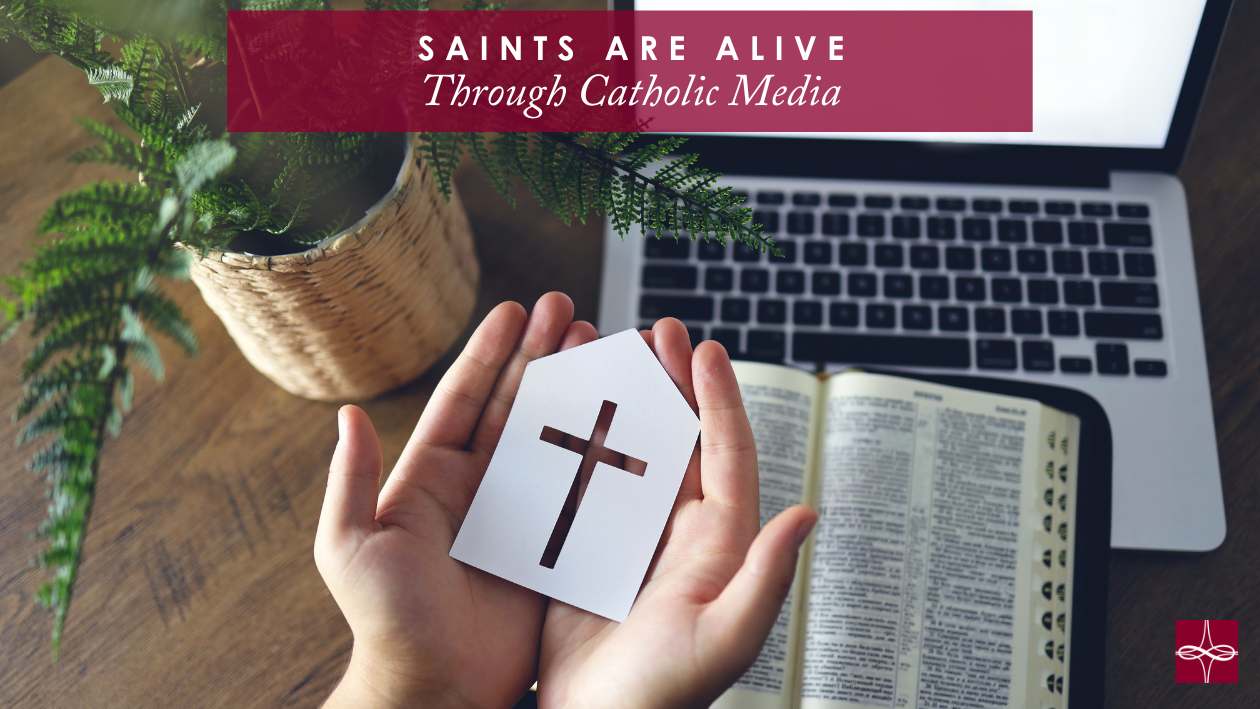








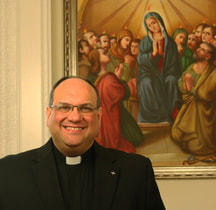
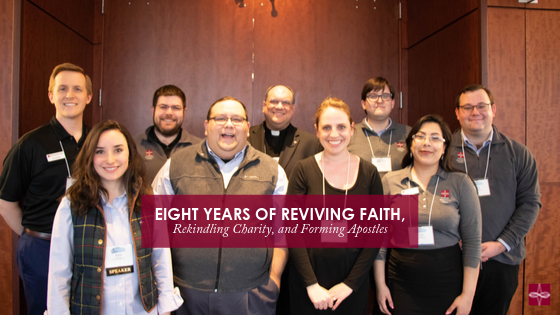


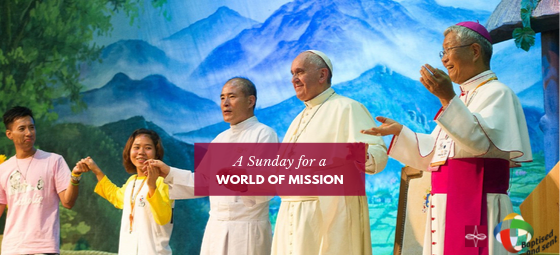

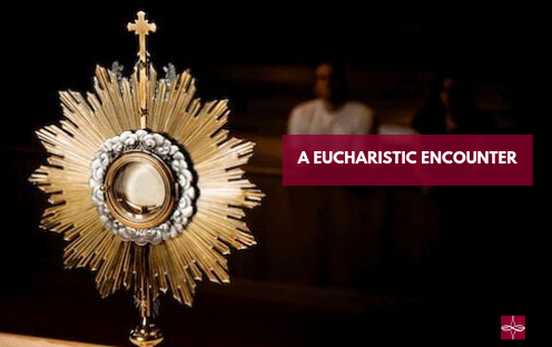

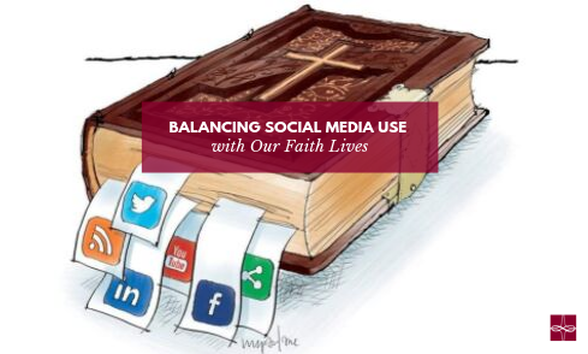

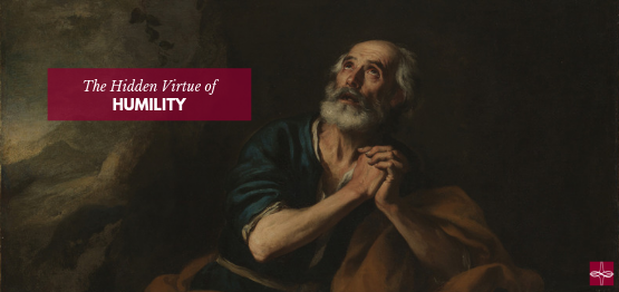

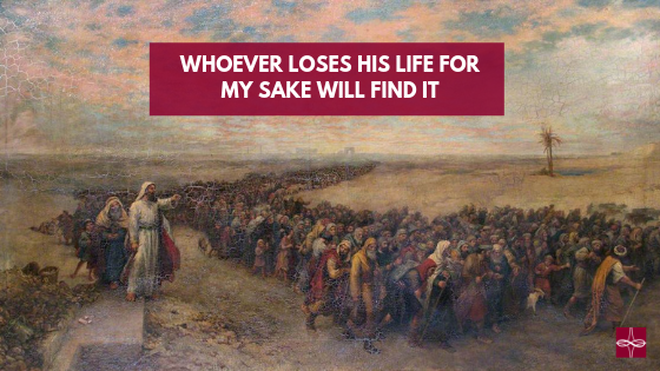


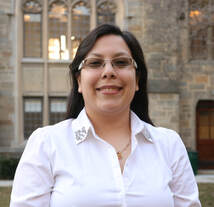
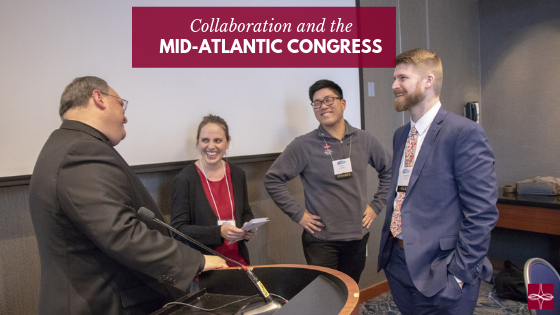





 RSS Feed
RSS Feed